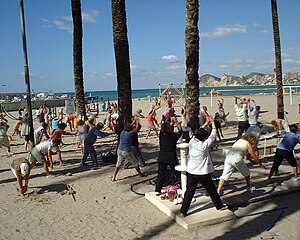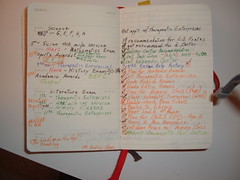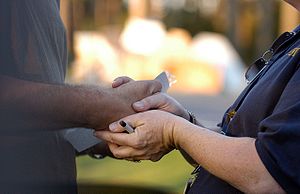As I am getting ready to start Hepatitis C (HCV) treatment, I've been running across some pretty interesting pieces of information that I think will make my treatment experience more successful. This information has come to me courtesy of the websites, Facebook groups, listserves and folks on Twitter I subscribe to or follow who review and report on medical research and medical news. And I find myself feeling awfully grateful towards them for bringing these things to my attention.
With So Much Information, Can Your Doctor Keep Up?
That said, I can't help but feel some disappointment that my doctors aren't the ones sharing this information with me. But I guess their busy schedules don't leave them with enough time to keep up with their medical journal reading. Or maybe it is the fact that, with communication advances like the Internet, there is just so much more information being shared from all over the world that my doctors just can't keep up. Either way, it sort of leaves me in the awkward position of knowing more about new research findings than my doctors.
So today I want to:
- share a recent discovery,
- talk about where to go to find illness and treatment-related information and
- ask if you too know more than your doctor.
My Discovery About Vitamin D and HCV
Several years ago, I was diagnosed with a low Vitamin D level by my endocrinologist. Since then, I have been taking a Vitamin D supplement which has helped me get my Vitamin D level back into the normal range. Along the way, I have found that I am getting sick from colds, flus and other bugs a lot less and, when I do get sick, the symptoms of those illnesses are much less intense.
Today I was alerted by a HCV group I belong to on Facebook about a research study on HCV and vitamin D. About 84% of the HCV+ subjects in this study had a vitamin D deficiency. The researchers gave vitamin D supplements to these patient who were all undergoing HCV treatment. They found that boosting vitamin D levels back into the normal range (32 ng/mL) improved a patient's chances of getting a sustained virological response (SVR) to treatment from 42% to 86%. In addition, only 8% of patients taking vitamin D supplements relapsed after treatment compared to 36% of patients with low vitamin D levels who were not taking a vitamin D supplement.
That sounds pretty impressive to me. So I'm taking a copy of this research article to my next appointment and discussing it with my hepatologist. If he agrees with the findings, I am going to request that he monitor my Vitamin D level closely during treatment.
Finding the Information That is Out There
I know this kind of information is out there for other illnesses and conditions too.
In fact, I just read a book about cancer treatment (that I will be reviewing later in the week) that talks about using medications and supplements to synergistically enhanced the effectiveness of conventional cancer treatments. According to the author, this "cocktail approach" to treatment has produced some pretty amazing results.
If you live with fibromyalgia, myalgic encepholopathy, chronic fatigue syndrome or multiple chemical sensitivities, a group called Co-Cure compiles this kind of information for you from a wide variety of reputable sources. Visit their website and check out the research updates and reading room pages. You can also subscribe to updates via email by going to the list operations page.
Besides books and trusted medical websites, another place to search is Pub Med. Pub Med is the U.S. National Library of Medicine MEDLINE service that contains more that 21 million citations for biomedical literature. Check out their Quick Start guide for video tutorials, FAQs and links to learn more about searching for information on Pub Med.
Sharing the Information with Your Doctor
Once you have the information, it's time to talk with your healthcare provider. You'll need their help and medical expertise to discern if these new medications and treatment approaches are right for you and your specific situation. Be sure to take a copy of the article with you to share with your doctor.
I think it is a real litmus test of your working relationship with your doctor when you share information with them. So don't let fear stop you. You'll gain valuable information about your doctor's commitment to your good health and well being by sharing information with them.
When I have received a less than supportive response, I've taken it as a sign that it was time to find a better doctor.
So do you know more than your doctor? What trusted resources do you use to keep on top of new medical information? Do you feel comfortable sharing information with your doctor? Do you have any advice for others about sharing information with health care providers?
Please share your response on the Oh My Aches and Pains! Facebook page or below in the comments section.






































